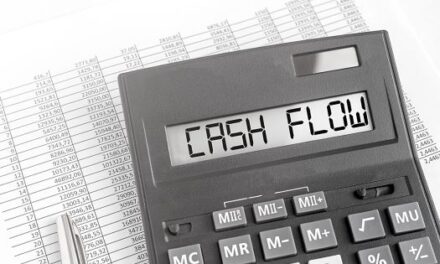Superannuation can be really sexy and very exciting for your investing outcome, if you understand the game and use it to your advantage.
So, what is that sexy part of super?
Out of all things – it is a very special tax treatment of superannuation savings.

Why do I call it sexy?
- You can save yourself lots of tax;
- As a consequence, you save more, so your investment will grow faster;
- Ultimately, you earn more profit, leaving you with more money saved.
In this article, I will explain in detail how that “sexy” super tax works and how you can take advantage of the system to improve your retirement savings efforts. Before we jump into this topic, if you don’t know much about superannuation and would like to understand the basics, this is the article that will explain it all for you
Superannuation and tax
Super as an investment vehicle has the biggest tax benefits out of anything else that we have in Australia – apart from the time when super is swapped to pension – which technically still is a superannuation, just in a retirement phase.
How does tax work in the superannuation world?
In one word – it is complicated – nothing is easy when it comes to investing, tax and super, but as long as you are able to choose the correct strategy for your situation, you can introduce many advantages to your savings.
Even though the tax is payable – it is concessional (lower rate) that if you invested money in any other vehicle, and this is why super is so beneficial.
There are 3 stages when you could pay tax:
- Tax payable on entry to super
- Tax payable on earnings – ongoing tax inside super
- Tax payable on exit from super
Entry to super – contribution tax
Tax is payable on some contributions but not others, so to understand tax, first we need to understand types of super contributions:
We can divide super contributions into two buckets:
Bucket 1 – Tax is payable & Bucket 2 – No tax is payable
Bucket 1: tax payable on entry
- Concessional contributions – that includes:
-
- your employer contributions such as Superannuation Contribution or SG
- salary sacrifice
- and any before-tax contributions you make for which you claim tax deduction. The limit for those contributions is called the concessional contribution cap – which currently is $25,000pa. There are exceptions, but we can discuss them another time. Tax is paid at the rate of 15% (up to the concessional contribution cap)
-
Bucket 2 – no contribution tax
- Non-concessional – or after-tax contributions – for which you do not claim tax deduction, or contribution your spouse makes for you to your fund (so called spouse contribution) – limit of non-concessional is $100,000a year – again there are exceptions, which we are not discussing here.
NIL tax is payable on those contributions
- Government co-contribution
NIL tax payable
- Rollovers from other super funds
NIL tax with the exception of rolling over from untaxed fund – very few around – usually old funds from public sector funds for government employees.
As you can see tax really only applies to concessional contributions, and even that is only at the level of 15%.
Tax payable on super earnings – ongoing tax inside super
Investment earnings inside super are taxed at a maximum rate of 15%, however if you hold investments within Australian Shares with franked dividends, your fund might pay less than 15% tax on those earnings.
Compare that with interest earned on investment on your name if you are on the highest MTR of 47%, obviously tax at 15% inside super is very beneficial.
Capital gains tax is also very generous in super. If the investment has been held for more than 12 months, only 2/3 of the gain is taxed at rate of 15%. Again, compare that with the tax payable on CGT if asset held on your own name, even if you apply 50% discount for CG if assets held over 12 months, your tax level is still 23.5% if you are on 47% tax rate. Again, it proves how tax-effective your super fund can be.
However, once your super has been moved to the retirement phase – pension – there is no tax payable on:
- Earnings
- Income that you draw
- Capital gains
Government recognised that this is a bit of tax heaven, so it decided to introduce a limit as to how much you can actually have in your pension, by introducing a transfer balance cap – current limit is $1.6mil – thankfully this is quite a substantial limit for most retirees.
Tax on exit from super
Tax on withdrawal (exit from super) could be payable if:
- You want to access your super savings prior to turning 60 – and it will depend if you reached your preservation age, whether you want to receive an income stream or a lump sum and what type of components this withdrawal contains. So generally, unless there is no other way, if there is a tax to be paid, just wait until you meet your conditions of release to have your benefit tax free.
- Once you reach conditions of release – for example retirement – all your super savings are tax-free and you can generally withdraw the total balance. But honestly, why would you withdraw money from the tax-free environment of your retirement pension and move money to the taxed environment – e.g. on your name.
- Unfortunately, there could be tax payable on your super or pension benefit if you pass away and it is paid to your beneficiaries as a death benefit. At that point it depends who your beneficiary is – eg. if your partner – husband, wife – no tax is paid, but if your adult children – most likely yes, as they most likely are not your financial dependants. So tax depends on who receives your death benefit, how it is paid – lump-sum or income-stream and whether benefit contains taxable components.
Death benefit is very complex and is outside the scope of this article.
As you can see, no matter what type of investments you compare super with, it will always come at the front because it has:
- very minimal tax on entry,
- very low ongoing on earnings
- and basically NIL on your retirement.
Now you know exactly how to contribute to super and what types of contributions are the best for your situation.






















